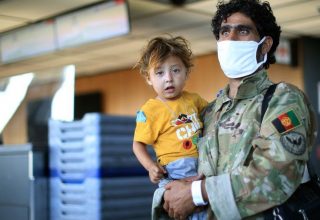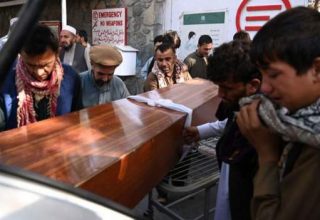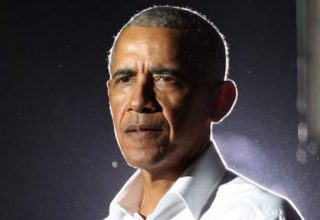
Germany is seeking an agreement with EU countries to keep ski resorts closed until early January, in an attempt to curb the spread of coronavirus.
Chancellor Angela Merkel told parliament that efforts were being made to reach a Europe-wide decision.
Italy and France have expressed support for a co-ordinated approach. But Austria has voiced concern.
Some of the early European coronavirus hotspots were at ski resorts, helping spread infections across the continent.
Last week, the World Health Organization (WHO) warned that Europe faced a “tough” six months , amid mounting cases. Renewed restrictions have led to a reduction in new infections in some countries, but there are fears the pandemic could worsen over the winter.
Like Germany, Italy has also stressed the need for a united approach on the issue of ski resorts, and Prime Minister Giuseppe Conte has already backed delaying the start of the ski season.
“If Italy decided to shut down all its ski lifts without any support from France, Austria and the other countries, then Italian tourists would risk going abroad and taking the contagion back home,” he told La7 TV earlier this week.
Many Italians head for the slopes over the Christmas and New Year break and the period is a vital part of the local economy for ski resorts across Europe.
French President Emmanuel Macron has made clear that the country’s ski resorts will stay shut until the New Year. Prime Minister Jean Castex said on Thursday he wanted to see the coronavirus rules for ski resorts “harmonised at European level as much as possible”.
France plans to ease its current national lockdown in three phases through to the end of January. Most restrictions will be eased for a few days over Christmas. Mr Castex said “this family celebration cannot take place without grandparents being present”.

But Austria has voiced concern over any EU-wide plan for ski resorts, with Finance Minister Gernot Blümel saying that if the EU forced the resorts to remain closed, “then they will have to pay for it”. Compensation would run into billions of euros.
Austria’s government is already facing legal action over the Ischgl ski village, which was linked to cases in 45 countries after skiers brought the virus home with them.
Switzerland is not in the European Union and, unlike other Alpine destinations, its ski resorts are already open, so skiers unable to spend their winter breaks in neighbouring countries could head there instead.
Ski lifts are running, with a requirement to wear masks, prompting criticism from WHO Covid-19 envoy David Nabarro. “Once infection rates sink, and they will sink, then we can be as free as we want. But right now? Should ski resorts open? Under what conditions?”
Meanwhile, Mrs Merkel has also defended the decision to extend Germany’s partial lockdown until 20 December, announced on Wednesday.
The stricter rules will limit private gatherings to five people from two households coming into effect from next week – although children under the age of 14 are exempt.
German leaders have also unveiled plans for Christmas, with meetings of up to 10 people allowed from 23 December until 1 January.
Addressing the Bundestag – Germany’s lower house – on Thursday, Mrs Merkel said the tight restrictions must remain for now because the goal was still to get down to a maximum weekly rate of 50 new infections per 100,000 inhabitants.
But in 62 areas, including Berlin, the figure was above 200, she said. “Unfortunately we have to say that we cannot promise any relief for Christmas and the New Year,” the chancellor said.
Source: bbc.com

















